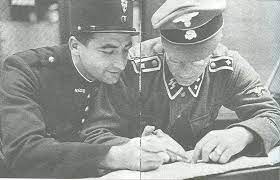Eighty years ago the Vichy authorities do their bit for the Final Solution
Air Chief Marshal Sir Hugh Dowding retired from the RAF at the standard retirement age of sixty. After he stepped down from Fighter Command in 1940 he had not had a happy time, bogged down in querulous disputes with the Air Ministry. He had been conspicuously unsuccessful as the nominal head of a purchasing delegation to the USA. His only worthwhile work had been to write the despatch recording his victory in the Battle of Britain. It was not published until after the war, supposedly for security reasons but more because of its acerbic tone towards some of the Air Staff's decisions. Dowding was never raised to the prestigious and lucrative five-star rank of Marshal of the Royal Air Force unlike the service's other senior wartime commanders. This was a mean-spirited punishment for his awkwardness and an unspoken rebuke for having proved that the Air Staff's pre-war doctrine that only bombers provided a defence against the Luftwaffe was wrong.
Despite the defeat of the censure motion political discontent with the government was still strong and a parliamentary motion against Defence Regulation 18B under which potential German sympathizers had been detained without trial attracted 25 votes. The case against 18B included the scale of the government's arbitrary powers, which were dislike across the political spectrum, and a more partisan objection amongst Tory right-wingers to a measure administered by a Labour Home Secretary.



Comments
Post a Comment